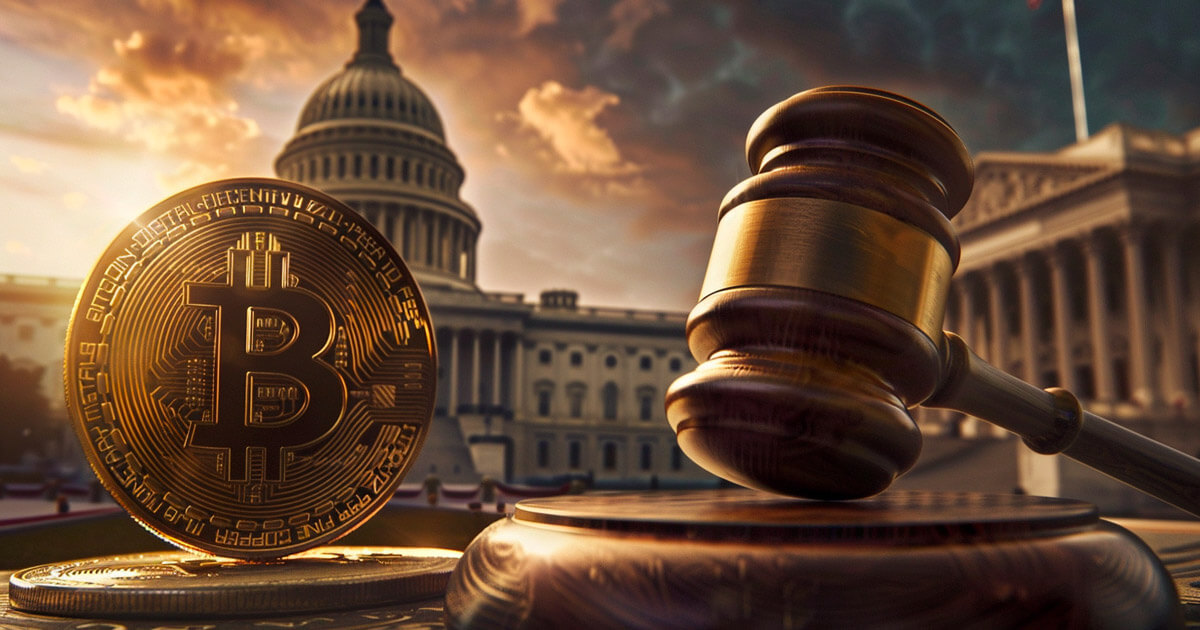The persistent disconnect between policymakers and expertise invariably ends in proposed and authorised rules overlooking pertinent elements of latest applied sciences. US lawmakers and regulators face the problem of regulating rising applied sciences throughout blockchain and AI. Policymakers, like Senator Cynthia Lummis, have acknowledged the necessity for innovation within the monetary sector and proposed laws just like the Digital Asset Innovation Act to deal with issues. Nevertheless, the SEC’s recent actions against Ripple Labs spotlight the present “regulation-through-enforcement” strategy, which critics argue stifles innovation.
To be efficient, they have to turn into well-versed in cryptocurrency and its underlying expertise. For instance, public blockchain belongings enable any particular person or entity to mine cash and tokens; there’s a vital menace to the tip client and nationwide safety if mining exercise is unmonitored and unchecked. That stated, the push has been to control blockchain beneath present regimes that, whereas exerting their finest efforts, can’t create a framework to successfully deal with the true dangers that would threaten our monetary markets.
Senators Elizabeth Warren and Roger Marshall are sponsors and supporters of the Digital Asset Anti-Money Laundering Act of 2022, which would supply particular guidelines for crypto. The disadvantage is that the principles appear to be guidelines we at the moment have pressured to suit blockchain expertise. A 51% assault is a major menace to nationwide safety, particularly as extra customers enter the crypto market.
Though the invoice requires sure entities to register as Cash Companies Companies, it doesn’t deal with blockchain as a world exercise. The affect of USA regulation is considerably diminished exterior of our borders. A attainable answer can be to create a blockchain monitoring division of FinCEN.
Policymakers usually reply to public issues. As a result of they’re normally reacting, options are generally superficial at finest and create guidelines with no nuanced understanding of the expertise. This oversight ends in makes an attempt to suit crypto into current regulatory frameworks, disregarding the complexities inherent in new expertise.
A proactive regulatory strategy is probably going the best for regulating blockchain applied sciences. Lawmakers and regulators ought to in all probability begin with a process pressure that includes business leaders, customers, miners, and eager regulators to find out the rules, guidelines and legal guidelines that may be best.
Main crypto gamers have regarded to regulators for regulatory readability to make sure client safety. As an alternative of offering complete new frameworks, policymakers are wielding enforcement actions towards the business, as evidenced by SEC lawsuits and high-profile settlements towards main crypto firms. This “regulation-through-enforcement” strategy is basically flawed; it creates adversaries, not allies, and stifles innovation that the federal government might leverage to enhance itself.
Uncertainties of the authorized standing of digital belongings, as exemplified by ongoing instances like Hinman’s, hinder progress. As an alternative of counting on conventional lobbying efforts, policymakers should actively have interaction with the crypto neighborhood and business professionals. The dearth of outlined precedents from unresolved court docket rulings in crypto instances is detrimental to each side.
Whereas the judiciary shouldn’t legislate from the bench, well-formed opinions that debate the court docket’s views on blockchain may benefit how legislators act. The absence of readability on whether or not digital belongings or funding merchandise represent securities hinders progress towards complete cryptocurrency rules.
Compounding the problem, many politicians proceed to conflate the great and unhealthy makes use of of blockchain expertise. Certainly, some persist in associating crypto with illicit actions and different high-risk actions. These positions foster doubt among the many public and hinder particular person participation within the crypto business.
Dispelling these misconceptions is essential for fostering an correct understanding of the crypto panorama. The aforementioned process pressure could possibly be the answer. Crypto transactions are considerably extra sophisticated to disguise than money transactions.
Opposite to standard perception, crypto transactions usually are not a covert haven for criminals. Crypto gives enhanced traceability, with a searchable, immutable file of each transaction. Understanding the numerous variations between crypto and conventional banking transactions is pivotal for knowledgeable policymaking. May be seen by a wider viewers,
Legislation enforcement might be essential in leveraging blockchain intelligence to trace actions on public blockchains and determine unhealthy actors. A well-trained process pressure conversant in blockchain expertise is a strong deterrent towards felony actions.
Policymakers face the continued problem of adapting to the speedy tempo of technological developments. A proactive strategy is important to formulate efficient rules, necessitating connectivity with initiatives and vital gamers somewhat than relying solely on conventional lobbying efforts.
The crypto neighborhood and business professionals can contribute to a extra knowledgeable policymaking course of by forming commerce teams and alluring policymakers to instructional occasions. Bridging the information hole is important for creating rules that facilitate innovation whereas guaranteeing safety.
Proposed actions for policymakers on constructing a safe and revolutionary crypto future
Putting a stability between enhancing safety measures within the crypto house and fostering innovation requires an knowledgeable strategy. Insurance policies needs to be designed to guard customers whereas permitting the business to flourish, primarily if the US goals to keep up international management in innovation.
The conclusion of crypto’s full potential hinges on policymakers greedy its intricacies. It’s time to maneuver past superficial approaches and embrace a extra knowledgeable regulatory setting supporting innovation and safety. The crypto neighborhood is ready to have interaction in constructive dialogue, bridging the hole between technological developments and efficient regulation.

